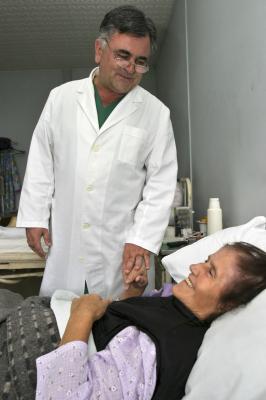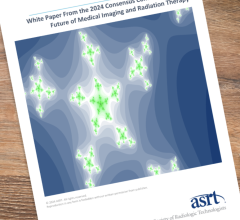
January 4, 2017 – According to a new research study, most U.S. radiologists receive favorable satisfaction scores from their patients. The abstract, funded by the Harvey L. Neiman Health Policy Institute, was presented at the 2016 meeting of the Radiological Society of North America (RSNA).
Using 2010 U.S. Census data, patient reviews were retrieved from the public patient ratings website, www.RateMDs.com, for all radiologists in the 297 U.S. cities with a population greater than 100,000. The researchers identified 1,891 patient reviews for 1,259 radiologists and reviews included rating scores of one through five, with five being the highest, in four categories (staff, punctuality, knowledge and helpfulness). For Medicare-participating radiologists, group practice size and years in practice were obtained from the Physician Compare database.
“We found that in all four categories, the most common score was five and second most common was one,” noted Luke Ginocchio, M.D., lead study author and an incoming resident in the department of radiology at New York University Langone Medical Center. “Scores of two through four were far less frequent, and radiologists in the Northeast scored significantly lower than radiologists elsewhere for both staff and punctuality.”
Ginocchio noted that while only a minority of radiologists in the studied cities were rated, most radiologists who were reviewed received favorable satisfaction scores from their patients. However, online reviews tended to reflect either strongly positive or strongly negative opinions. In addition, scores across categories were highly correlated, suggesting a halo effect influencing patients’ global perceptions of radiologists.
“Patient satisfaction metrics are becoming increasingly tied to various physician performance evaluations, as well as both Medicare and private insurer reimbursement,” said Richard Duszak, M.D., FACR, professor and vice chair for health policy and practice in the department of radiology and imaging sciences at Emory University and affiliate senior research fellow at the Neiman Institute. “The recent Medicare Access and CHIP Reauthorization Act [MACRA] of 2015 created two paths that link quality to payments: Merit-Based Incentive Payment System and Advanced Alternative Payment Models. Both of these paths include patient satisfaction as a critical performance measure in determining positive or negative Medicare payment adjustments.”
Duszak added that prioritizing patient satisfaction is an important aspect of achieving patient-centered care, managing increased patient expectations, and, based on a number of studies, improving patient outcomes.
The researchers concluded that their observations indicate the importance for radiologists to recognize facility-related, as well as of radiologist-related, factors in impacting patients’ impressions and online public ratings of radiologists.
For more information: www.neimanhpi.org


 July 30, 2024
July 30, 2024 








